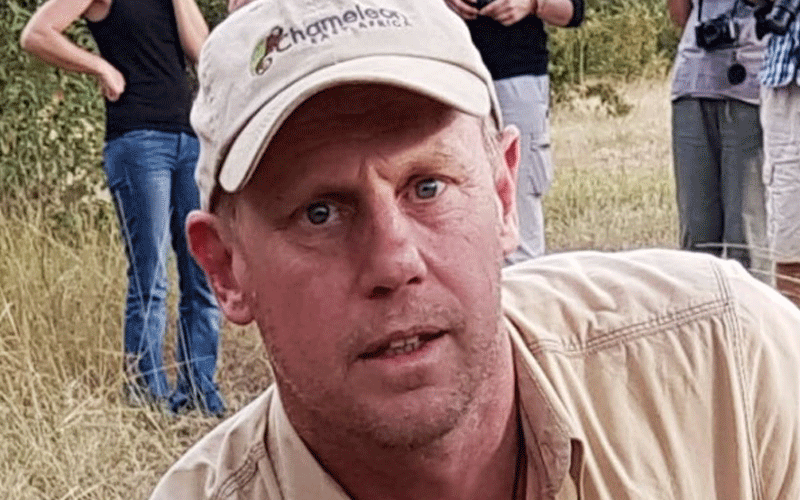Mara land owners weigh options as Covid-19 bites

Harriet James @harriet86jim
Despite the arrival of the wildebeest from Tanzania last weekend, which normally kicks off the peak tourism season in Masai Mara Game Reserve and in the country, most landowners in Mara conservancies are counting their losses in a region that is heavily reliant on tourism.
There are now fears this uncertainty might tempt the owners of wildlife ranches to sell land or even convert land meant for conservation of game to agriculture or cattle ranching, especially given heavy rainfall in the area during this season. Others might result to charcoal burning to feed their families.
“Right now, landowners are desperate as some had taken loans and had used their land as collaterals.
Moreover, the closure of the local livestock market, which acted as their supplement supply of income, due to Ministry of Health regulations has worsened the situation,” said Daniel Sopia CEO of Masaai Mara Wildlife Conservancies Association.
The landowners have borne the brunt of the measures that countries globally have adopted to the spread of Covid-19, such as shutting down airports, full lockdowns, imposing travel restrictions as well as completely sealing their borders, which has resulted in loss of tourists.
“We were looking forward to a better season this year, but we now have nothing.
We are hoping to have a remedy soon to save the situation,” said Francis Nkotoi, the Masai Mara Conservancies’ Council Chairman.
He talked in a webinar dubbed Sustaining Mara Conservancies During and Beyond Covid-19, where landowners and tourism partners discussed ways in which the conservancies, residents, investors and wildlife are coping during the pandemic. 
According to research carried out by the organisation, 75 per cent of the Mara is unprotected and inhabited by the nomadic Maasai.
While the public knows about game drives in national reserves, but two in every three wild animals lives outside the national parks and reserves and they either inhabit the conservancies or are in privately, but unused bushes.
Though criticised for the unequal returns to the landowners, for decades, conservancy agreements with farmers have kept land adjacent to wildlife reserves open for migrating animals.
In turn, the locals are employed as rangers and staff in the lodges and camps.
About 20 years ago, direct earnings by locals from tourism in the Mara were restricted as most earnings went directly to government bodies, private operators and a few individual landowners clustered around the reserve.
There are 15 operational conservancies in the greater Masaai Mara covering 1,425 square kilometres.
This acreage is increasing. The conservancies support over 14,500 households — approximately 100,000 people.
Last year, the lease fees paid to land owners was estimated at over $5 million (Sh530 million).
In addition, while the Mara reserve has become overcrowded via mass wildlife tourism during the high season, private lands outside the reserve offer tourists more personalised game drive experiences.
With the pandemic, many landowners who were depending on tourism are now vulnerable. 
“Conservancies put people at the centre of the conservation model. The revenue that comes from tourism supports livelihoods,” Sopia told participants in the webinar.
Each conservancy is on a different payment models. While some are on monthly arrangements, others rely on fees generated on game viewing on a daily basis.
Suggested solutions
Greg Monson, Founder of Kicheche Camps and Chameleon East Africa, says in a good year, 70 per cent of their revenue is received during the migration season.
Part of the cash goes into maintaining the conservancies, paying staff, rangers and paying leases.
“About 25 per cent of the income goes into supporting the conservation model.
Despite the fact that we haven’t received any revenues this year, we are committed to the long haul.”
“After discussions with landowners, we have agreed that instead of 100 per cent, we shall pay them 50 per cent of the lease payment for the next 12 months.
This is for the period between July 2020 and June 2021 and is approximately $2.7 million (Sh286 million)”.
“This is despite the fact that we have no visitors coming to the Mara and most of us will need additional investments from donors and well-wishers to endure,” Monson added.
This arrangement will see landowners, rangers and patrol sustained for the next 12 months. 
To raise this cash, some of the partners have taken up shareholder loans or are relying on donors to pay their debts.
President Uhuru Kenyatta has authorised Treasury appropriations to include a Sh53.7 billion economic rescue package.
Tourism will get Sh5.9 billion from the kitty, with Sh3 billion allocated as soft loans for hotel renovations via the Tourism Finance Corporation.
Of this amount, Sh2 billion will be grants to 160 community conservancies and the engagement of 5,500-community scouts for a year by KWS.
“We are waiting to see how the cash will be allocated to different conservancies.
We hope it will be transparent process to benefit people really affected by the pandemic will benefit,” says Founder of Sustainable Travel and Tourism Agenda, Judy Kepha-Gona.
Despite hopes on domestic tourism to revive the sector, lodge owners fear it will not solve their crisis.
“About 25 per cent of the revenues are accrued from the high-end tourism and goes to support the model.
Kenyans pay only a third of the cost of the packages and also make late booking,” regretted Greg.
According to Riccardo Orizio, CEO and Founder at Saruni Lodges, high-end tourism is what makes Kenya different and competitive from her neighbours such as Botswana, Tanzania and Namibia.
“It is vital that international flights resume, guests are not subjected to quarantine and positive messages should be relayed to our international guests,” he urged.







